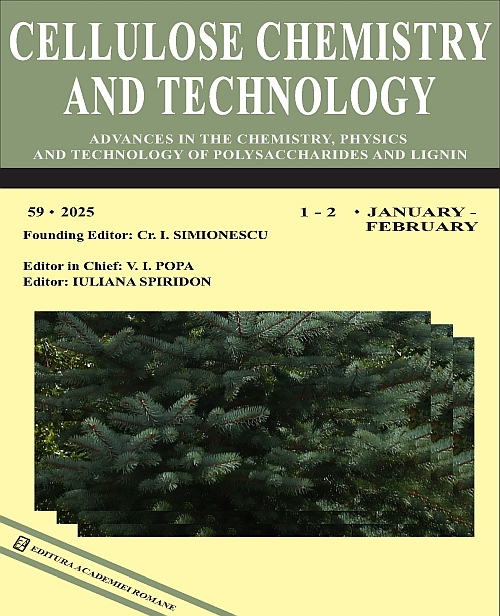|
Title
Experimental investigation on the mechanical, moisture uptake and bio-degradation characteristics of Tulsi fiber (Ocimum tenuiflorum) and mango (Mangifera indica) seed particles reinforced composites
Authors
PREMKUMAR MARIMUTHU, BENSAM RAJ JESURETNAM, LAWRENCE PALIAH and
NATARAJAN NAGAMANAICKER
Received
February 8, 2025
Published
Volume 59 Issue 5-6 May-June
Keywords
natural composites, tulsi fiber, mango seed, water absorption, biodegradation
Abstract
Natural composites have garnered attention for application in the automotive and construction industries due to their eco
friendly nature and lightweight properties. However, their strength is often limited, presenting challenges for such
applications. The goal of this research was to develop a composite material with enhanced performance characteristics.
The study focused on using Tulsi fiber as reinforcement in composite production. Additionally, mango seed particles
were incorporated as a filler, alongside Tulsi fiber. The composites were fabricated using epoxy resin as the matrix, with
varying amounts of Tulsi fibers as reinforcements, utilizing the conventional hand layup method. An optimal fiber-to
resin ratio was established through experimentation. The results indicated that a composition of 30 wt% Tulsi fiber and
70 wt% epoxy resin exhibited notable strength. Further reinforcement of this composite with different amounts of mango
seed particles was conducted. Mechanical properties, water absorption, and biodegradation characteristics were assessed.
The composite with 30 wt% Tulsi fiber and 20 wt% mango seed particles demonstrated superior performance in terms
of tensile strength (60 MPa), flexural strength (90 MPa), and impact strength (26 kJ/m²). These improvements were
attributed to the effective load transfer facilitated by the filler and fiber reinforcements. Moreover, the moisture absorption
study revealed that the composite with 30 wt% Tulsi fiber and 30 wt% mango seed particles absorbed less water (7%
over 10 days). During the biodegradation study, this same composite exhibited the least mass loss (34% over 60 days).
In conclusion, the study successfully developed a composite material with enhanced mechanical properties by
incorporating Tulsi fiber and mango seed particles into an epoxy matrix. These findings highlighted the potential
applicability of these composites in automotive and construction applications.
Link
https://doi.org/10.35812/CelluloseChemTechnol.2025.59.43
|



